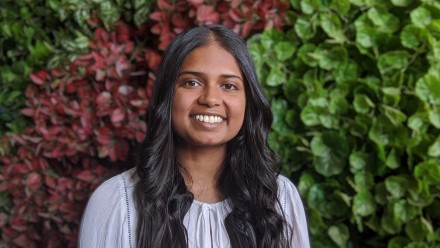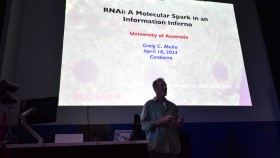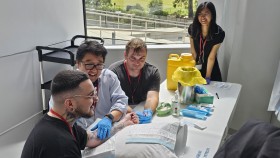2019 Top Early Career Cellular Microbiologist awarded to Dr Anjali Gowripalan
Dr Anjali Gowripalan has been awarded the 2019 Top Early Career Cellular Microbiologist at the 2019 Australasian Virology Society (AVS) for her research into improving the efficiency of vaccination development.
At the AVS conference in December 2019, Dr Gowripalan presented her work on a novel process that can be used to reduce the time it takes to develop effective vaccines.
A vaccine works by training the immune system to recognize and combat pathogens, either viruses or bacteria.
To make certain types of vaccines we need to be able to modify the genomes of viruses and we have been adapting CRISPR/Cas9 technology (simply referred to as ‘crisper’) for this purpose.
“We have changed the way CRISPR technology is currently used to modify the Vaccinia virus by manipulating the cut and paste mechanisms of this technology.” said Dr Gowripalan.
In the current system when creating vaccinations, viruses are cut by CRISPR and then pasted back together, however this doesn’t always produce the best results for creating the specific virus that the researchers want.
Dr Gowripalan explained “by putting the paste function before we cut the DNA, we see much better results in our manipulation of the virus.”
At the AVS conference Dr Gowripalan was also awarded the Microorganisms Travel Award for her presentation.
Dr Gowripalan, who is in the second year of her postdoctoral research, is currently working on submitting this work for publication. She is part of the Department of Immunology and Infectious Disease working under the leadership of Professor David Tscharke at the John Curtin School of Medical Research.















